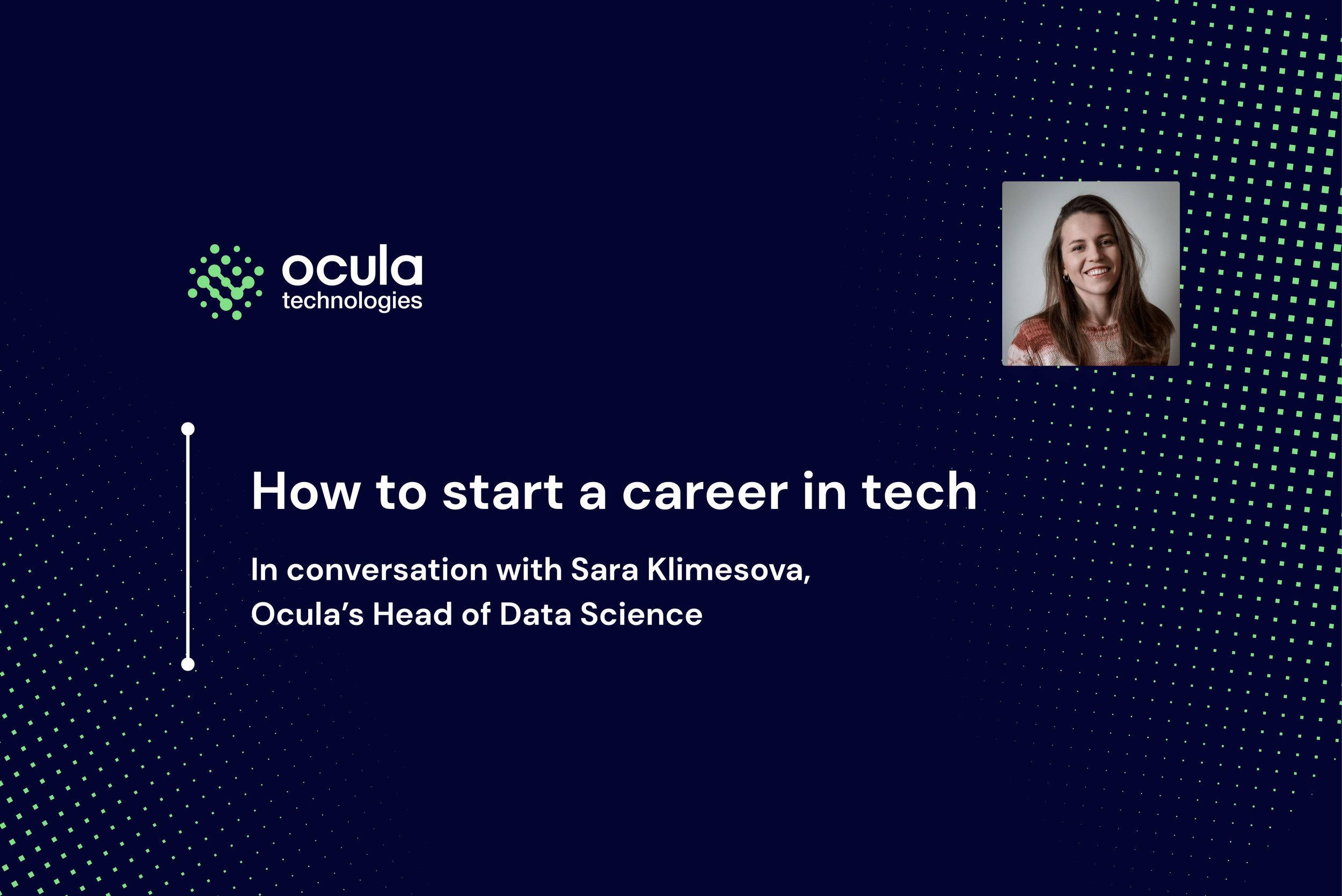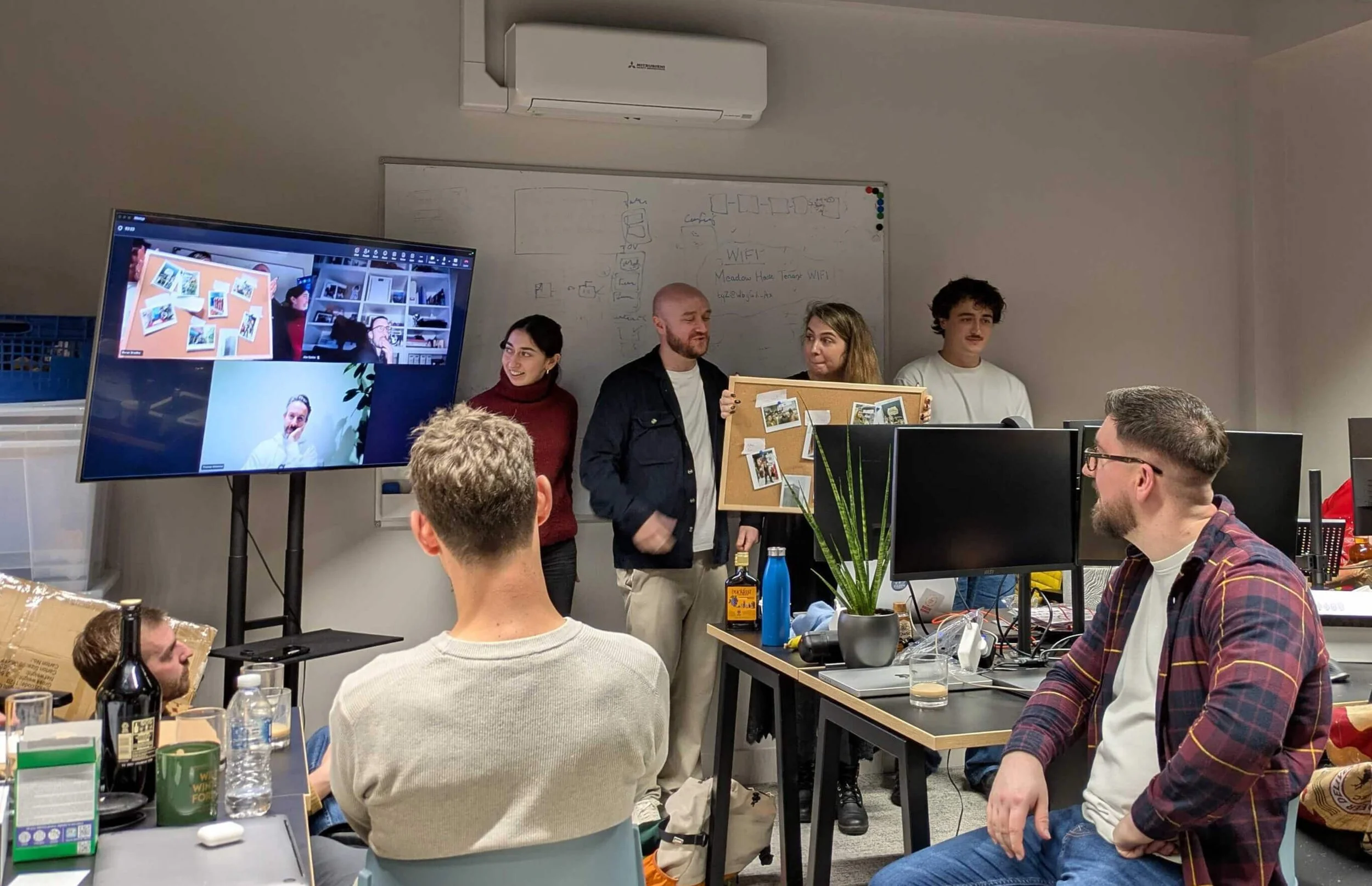Ocula’s Head of Data Science on how to start a career in tech
Ocula’s Head of Data Science shares a day in the life as a data scientist, her career journey so far – plus advice for anyone curious about starting a career in tech.
This blog is part of our series launched on International Women’s Day. In this series, some of the amazing women in the Ocula Technologies team share their career journeys, industry insights, plus inspiration and advice for anyone thinking of breaking into a similar career.
Hi! I’m Sara.
I’m the Head of Data Science at Ocula, where I get to do what I genuinely enjoy most: thinking about big problems and how to solve them with data science. I love working at the intersection of data science and engineering, designing new systems and solving complex problems that bridge both worlds.
My (definitely not straight-line) journey into tech
If you're looking for the story of someone who knew they wanted to be in data science from age 8, coded their first neural network at 12, and followed a perfectly plotted path to their dream job... that's not me.
I've always loved math, but somehow ended up at Warwick Business School. I quickly realised this wasn't quite right for me, as I wanted more quantitative work. The silver lining was that I learned how to communicate technical concepts in business settings, a skill that's proven invaluable.
Determined to course-correct, I pursued a Business Analytics masters at Warwick to focus on data science. My dissertation on dynamic pricing optimisation in retail gave me my first taste of applying algorithms to real business problems.
After graduation, I joined Deloitte and immediately gravitated toward analytical projects. Over three years, I worked across a surprising range of industries. Highlights included building analytics tools at the BMW assembly plant and working with McLaren's F1 strategy team. Nothing beats the pressure of knowing your models might influence race-day decisions.
Three years ago, I made the jump to Ocula. After years in consulting, where projects would end just as they got interesting, I was drawn to the opportunity to build something lasting, to see products evolve over time. My first project actually leveraged my postgrad work on price optimisation for NFL, which was a satisfying full-circle moment.
A day in the life of a data scientist
The honest (and cliché) answer…? There isn't a typical day in the life of a data scientist. That's what keeps this job interesting.
Some days I'm coding, building and testing models. Other days I'm in meetings, translating technical concepts for stakeholders or collaborating with engineers on implementation plans. I might spend a morning reviewing a junior team member's approach to a problem, then an afternoon researching a new technique we could apply to an upcoming project.
Recently, much of my time has been focused on LLM projects. A big part of this role is about figuring out how to effectively integrate these powerful but sometimes unpredictable models into practical business applications.
The evolution of data science and common misconceptions
I’d say the biggest misconception about data science is that it’s all about building complex models. The reality is that most of the job is understanding the problem, wrangling messy data, and figuring out how to implement solutions that actually work in production.
As for evolution, I've seen data science transform from a field where we had to fight for computational resources to run basic models to one where we have incredible tools at our fingertips. The rise of LLMs has been particularly fascinating for me. We're suddenly able to solve problems that seemed impossible just a few years (or even months) ago.
Looking forward, I think we'll see increasing focus on responsible AI development and deployment. The technical challenges are shifting from "can we build this?" to "should we build this, and how do we ensure it works fairly and reliably?"
What I love about working at Ocula
My favourite thing about working at Ocula is the trust and autonomy, definitely. I get to work with cutting-edge models and have genuine support for R&D work. But more than anything, my favourite part has got to be the people. It’s amazing to be part of a team that's technically brilliant but doesn't take itself too seriously.
Read more articles about life at Ocula
In conversation with Ocula’s Head of Design
What’s it like to intern at Ocula?
Press release: Ocula celebrates prestigious culture award win
My advice for starting a career in data science or tech
Be honest about what you don't know, but confident in your ability to figure it out. The field of data science changes so rapidly that even experienced professionals are constantly learning. The ability to say "I don't know how to do that yet, but I can learn" is far more valuable than pretending to have all the answers.
Also, don't underestimate the value of communication skills. I may have resented some aspects of business school at the time, but being able to explain complex concepts to non-technical stakeholders has opened more doors for me than any algorithm I've implemented.
If your background isn't traditional, don't apologise for it. Leverage it. Different perspectives lead to better solutions, and some of the most interesting work happens at the boundaries between disciplines.






